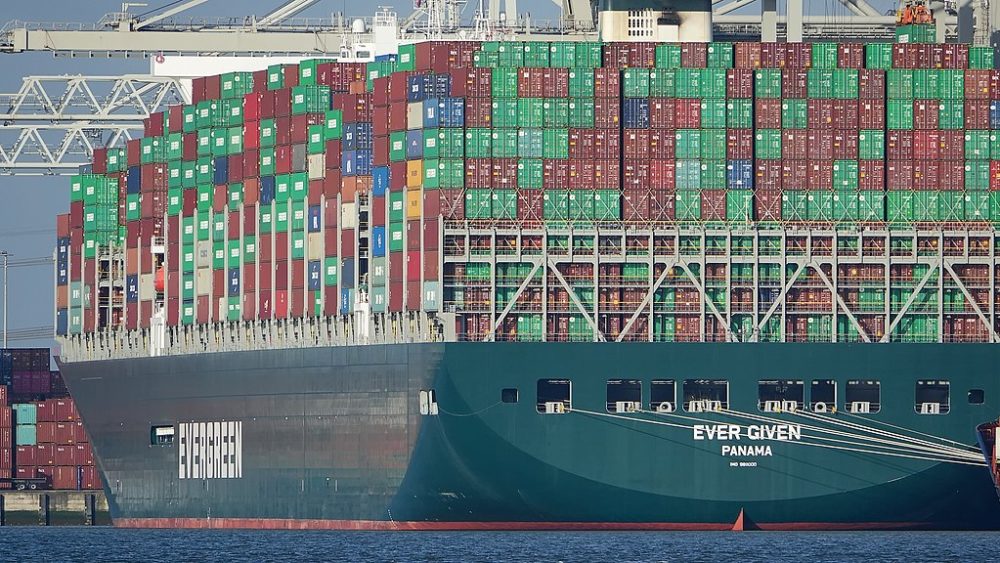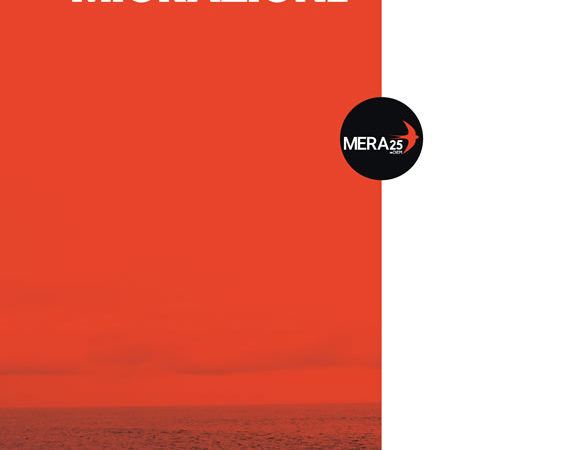The accident with the Ever Given ship reveals — amid the COVID-19 crisis — a great fragility of the capitalist system, despite its apparatus portraying it as undefeatable and immanent.
After a single virus turned capitalism upside down, one single ship blocked one of the most important veins of trade and, hence, the flow of capital.
Over the past weeks, the news that the Ever Given had blocked the Suez Canal circulated around the world. Ever Given is an enormous container ship which — while sailing through the canal — lost course and hit the shore. The ship is so large that it jammed canal traffic for several days.
One reads in Bloomberg, The Wall Street Journal, Reuters etc., how this incident affected the global chain of supplies and how much money was lost daily. The impact that such logic of capital circulation has over nature and society is of no great concern for a system whose sole goal is to accumulate capital, which must be put into motion indefinitely as an Ever Given Capitalism.
This is because capital –- the capitalist class and relations of capital –- considers everything outside of the private sphere of production as externalities. It’s a concept that economists put forward in order to legitimise capitalist relations, creating a powerful euphemism to cover its real meaning: imposing consequences on third parties like the accident with Ever Given. Such a case helps us look at capitalism through a broader, systemic lens.
Understanding externalities
A good example of an externality is the so-called green capitalist economy, with electric cars set to substitute 1 billion combustion engine cars worldwide. This will represent immense environmental costs due to mining, not only for the parts that cars already contain but also for those needed for the batteries (if a car weights on average 1500 kg, then 1,5 billion cars would represent much more than 1,5 trillion kg of mining plus the energy used to do it).
Tesla’s not your friend
Concretely, the batteries of Tesla Cars, made in Germany with minerals from Bolivia, hold a more privileged position than the people and environment of Bolivia, which for Tesla are mere externalities. The US, legitimised by the EU, promoted a coup d’état in Bolivia to secure the exploitation of Bolivian natural resources. (Elon Musk openly bragged about it on Twitter: “We will coup whoever we want! Deal with it.”)
However, such externalities are a rhetorical, ideological trick. In fact, they are “internalities”. If a company were to consider the real impact of its operations and production, which are being absorbed and paid by entire societies all over the world, then capitalism would not be profitable.
It is a constant process of what the political economy calls primitive accumulation, which Marx corrected as “so-called primitive accumulation”: the process of private appropriation of property, wealth and resources by means of private or/and state violence, judicial power, etc. It is a circular process of domination. The example of Bolivia represents an act of primitive accumulation.
The 2008 economic crisis
Another important contemporary example is the economic crisis of 2008. Big banks went bankrupt after people were unable to pay their mortgages. Then the US-government — instead of helping those bankrupted people — gave trillions of aid to the financial system. As a result, vast amounts of public money were transferred to the financial elite, to recover the capital lost. With free money from the state, the financial elite simply took over the same homes that had triggered their collapse, securing a vast amount of the housing market without having to recur to the so-called free-market.
Externalities are just a form to disguise and reframe capitalist relations of domination. While the capitalist elite unceasingly talks about market mechanisms and competition, it uses state and monopoly power outside of market relations to secure and obtain more power.
For non-capitalists, capitalism appears highly irrational. Capitalism is irrational in that it reduces all spheres of human rationality to merely one: economic rationality. But this ‘irrational’ system is highly rational from the perspective of exploitation since it promotes a rationality of appropriation, destruction, deprivation, violence and private accumulation.
It subdues all social relations (and nature, of course) to private gain and rule. Hence, capitalist economic rationality represents a specific rationality of power, which is based on control, fear and violence, with its fundamental – and indispensable form — the private means of production.
Such power is constantly reaffirmed as an Ever Given Power, as a power relation that cannot be changed or contested. But the Ever Given accident is the perfect real analogy to Ever Given Capitalism because it reveals its fragility. Its immense size reveals stiffness, unmaneuverability, incapacity to change course of action.
The fragility of the capitalism
Ever Given may appear mighty but all it took was a minor accident to turn it impotent. The historical conditions of capitalism — with its immense transnational character of production and circulation — shows that although it has overwhelming economic and military power, a simple virus (COVID19) — or some wind — can dramatically alter its course.
Capital accumulation requires the perpetual movement of capital itself. Any fracture in its structure can bring it to a halt, and signal a possibility for change. However, to exploit this capitalist fragility, political organisation and tactics are vital to enable change from our current Ever Given Capitalism to a new post-capitalist world. Some wind or a virus alone cannot subdue the translational power elites (or the Transnational Capitalist Class).
Capitalism, or techno-feudalism?
Of course, the transnational capitalist class would rather enter a new era of Ever Given Tech-Feudalism than abdicate its power and benefits. This is effectively the system we have now, where a handful of tech firms hold huge political and economic power over entire populations, with virtually no democratic accountability.
But to do so they resort to state and private authoritarian devices like mass surveillance, censorship, propaganda, violence, etc. Our task is to create new concrete social perspectives, relations and values out of this apparent Ever Given Lack of Perspective.
Volete essere informati delle azioni di DiEM25? Registratevi qui!




